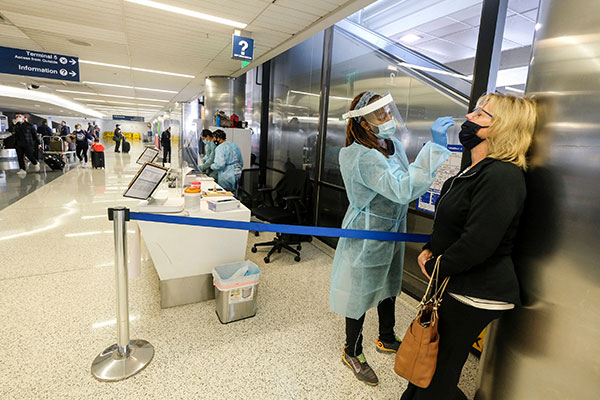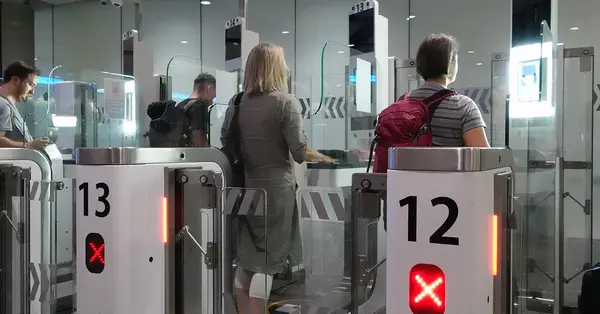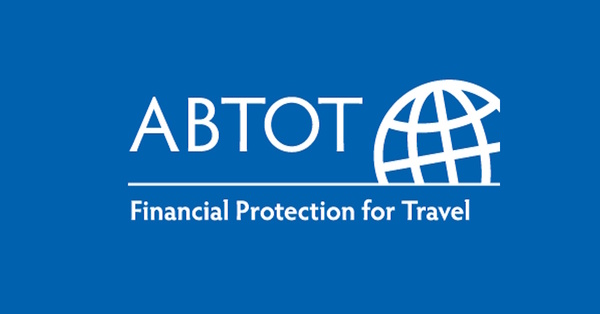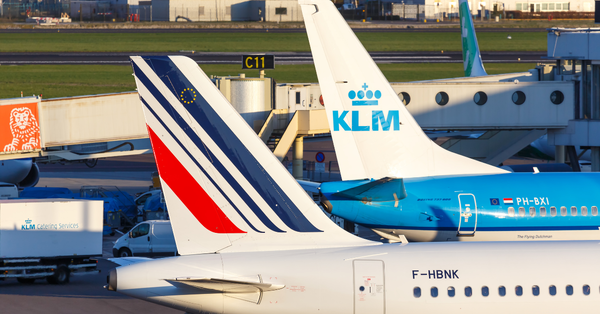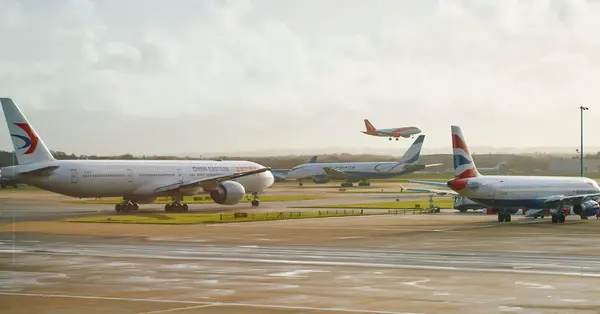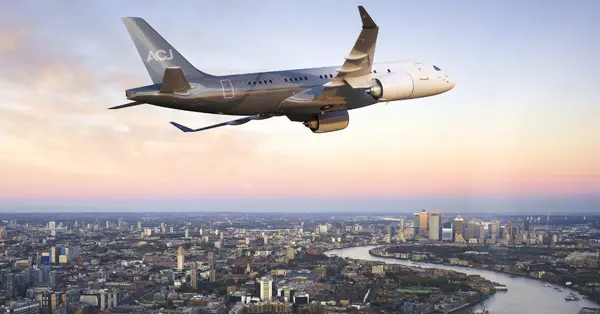You are viewing 1 of your 2 free articles
Rapid antigen tests on departure ‘could reopen international travel’
International travel could safely reopen through the widespread adoption of high-quality rapid antigen testing, a new study suggests.
A single rapid antigen test on departure is as effective as the ten-day quarantine currently required on arrival to the UK from countries with a high risk of Covid-19.
New modelling for Iata reveals that the current quarantine period required of passengers arriving in the UK “isn’t necessary for passengers arriving from the majority of countries if widespread testing is adopted”.
Antigen tests are cost-effective, require little specialist equipment and can deliver results quickly, according to the review of evidence on testing technologies, according to the research.
A family of four travelling from the UK to the Canary Islands will take a total of 16 tests at a total cost of around £1,600 – a premium of 160% on top of the average air fare, according to the report.
The modelling shows that based on five routes studied (London-New York, London-Frankfurt, UK-Singapore, UK-Pakistan and Manchester-Canary Islands) the cost impact of PCR testing will reduce demand by an average of 65%.
Replacing PCR with antigen testing would still have a cost impact on demand, but at 30%.
“Reducing, or even eliminating, the mandatory quarantine period for travel from the majority of low- or medium-risk countries would go a long way towards helping the airline and travel industries recover from the pandemic,” the study says.
Antigen testing can be “highly effective” in detecting Covid-19 infections, the study carried out by economics consultancy Oxera and specialist data firm Edge Health claims.
The research points out that PCR tests are considerably more expensive than antigen tests and results need to be processed in a laboratory.
“As such, PCR testing is unsuitable for airport testing, with a median time of 28 hours to receive results. Antigen tests are cheaper, can deliver results within 20 minutes, are easy to administer and do not require laboratory equipment.”
It indicates that single-test systems using rapid tests are best able to enable international travel to safety restart and accommodate a rise in passenger numbers over time.
“They are also likely to be sufficient to reduce the risk of infection from Covid-19 from air passengers, particularly for passengers from countries where prevalence rates are low and as vaccinations are rolled out across countries,” it says.
Passengers from 35 ‘red list’ countries – those deemed as being high-risk for Covid-19 – have had to pay £1,750 each to quarantine at a hotel since February 15.
However, evidence from global testing regimes has indicated that the risk of air passengers travelling with the virus is no more than 1%, according to the study,
“As vaccination programmes are accelerated and the number of cases fall within the community, the prevalence of Covid-19 in air passengers will be reduced even further,” the study says.
More than 30 million adults in the UK have received their first vaccine dose, so the requirement for testing of passengers will be a “mainstay” for the foreseeable future as other countries lag behind.
“While the sensitivity of tests – the ability of tests to accurately identify infected travellers – is a key element of an effective testing scheme, it is also important to take account of other aspects, such as capacity feasibility and costs of different testing schemes,” the report adds.
“As mass vaccination builds confidence and passenger volumes start to return, the ability to tests quickly and at scale with manageable costs is critical to the aviation sector’s future.
“The recent experience in the UK is that antigen testing has been used for HGV drivers, teachers, school children and university students. Still, there has been reluctance to introduce the technology to aviation, principally based on how effective antigen testing is for identifying and preventing people with Covid-19 from infecting others.”
Antigen tests are “significantly cheaper” than PCR tests which can be as much as four times more expensive.
Passenger volumes could decline by 65% when PCR tests are required or 30% when antigen testing is used.
“This would have a significant effect on the avaition sector, government tax revenue and other sectors of the economy,” the study points out.
Iata director general and chief executive Alexandre de Juniac said: “Restarting international aviation will energise the economic recovery from Covid-19.
“Along with vaccines, testing will play a critical role in giving governments the confidence to re-open their borders to travellers. For governments, the top priority is accuracy. But travellers will also need tests to be convenient and affordable.
“The Oxera-Edge Health report tells us that the best-in-class antigen tests can tick all these boxes. It’s important for governments to consider these findings as they make plans for a re-start.”
He added: “Travellers need options. Including antigen testing among acceptable tests will certainly give strength to the recovery. And the EU’s specification of acceptable antigen tests offers a good baseline for wider international harmonisation of acceptable standards.
“We now need to see governments implement these recommendations. The goal is to have a clear set of testing options that are medically effective, financially accessible, and practically available to all prospective travellers.”
George Batchelor, co-founder and director of Edge Health, said: “Our studies show that antigen testing can be comparable to PCR in overall effectiveness, with any disparity in sensitivity largely ironed out three days after arrival.
“When taking into consideration compliance with quarantine, antigen tests administered on departure can be effective at screening for Covid-19 infections.
“Tests will reduce the risk of air passengers spreading Covid-19, particularly those from countries where prevalence rates are low.
“If governments accept antigen testing in the coming months, combined with the rollout of vaccination programmes, it will enable the airline industry to get back on its feet safely.”
Oxera partner Michele Granatstein, head of its aviation practice, added: “When international travel reopens testing is likely to remain part of the strategy for controlling Covid.
“The type of testing regime chosen will make the difference in how quickly the travel industry recovers.
“The choice of a rapid test would be a real boost to the global travel and international business community, and our research shows it can be as effective as other testing regimes and as effective as a ten-day quarantine.”

